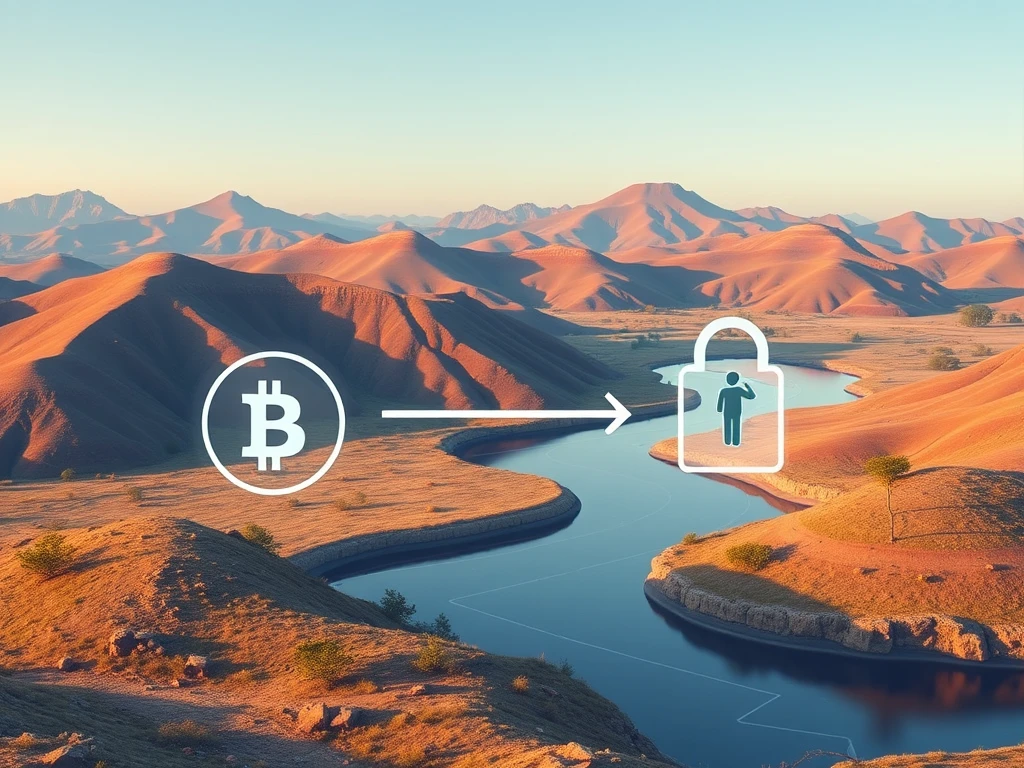DeFi Hack: Loopscale Secures Crucial $2.8M Recovery

The world of decentralized finance (DeFi) often sees rapid innovation, but it also faces significant risks, including malicious attacks. A recent incident involving the Loopscale protocol highlighted these challenges, but it also delivered a positive outcome: a substantial crypto recovery after a significant DeFi hack.
How Did the Loopscale DeFi Hack Occur?
The Loopscale protocol experienced a major security incident over the weekend. The attack, which occurred on April 26, resulted in the theft of approximately $5.7 million in digital assets. The method involved manipulating the pricing of Loopscale’s RateX PT token. This manipulation allowed the attacker to drain funds from the protocol’s USDC and SOL vaults.
Key details of the incident:
- Total amount exploited: Approximately $5.7 million
- Affected assets: USDC and Solana (SOL) from vaults
- Attack vector: Manipulation of RateX PT token pricing
- Impact: Affected only vault depositors, not borrowers or loopers
What Led to the Crypto Recovery?
Following the crypto exploit, the Loopscale team initiated contact with the attacker. Recognizing the potential for a partial recovery, they offered a bounty for the return of the stolen funds. This negotiation strategy proved successful.
On April 27, Loopscale sent an on-chain message proposing a 10% bounty for the return of 90% of the funds. They set a 24-hour deadline before considering involving law enforcement. By April 28, the team confirmed they received a response from the exploiter indicating a willingness to negotiate for a bounty.
Progress on the recovery:
- Initial offer: 10% bounty for 90% return
- Negotiation initiated: Attacker responded positively
- Funds returned: Approximately 19,463 Wrapped SOL (WSOL), valued at roughly $2.88 million as of April 29
- Recovery amount: Nearly half of the total stolen funds
Loopscale updated its community on April 29, confirming the return of the WSOL in multiple transactions since April 28, totaling around $2.88 million. The team stated that their pursuit of an amicable resolution continues to make progress.
Understanding Blockchain Security Challenges
The Loopscale incident is a reminder of the ongoing challenges in maintaining robust blockchain security within the DeFi space. While the recovery is a positive development, exploits remain a frequent occurrence.
Recent examples highlight this trend:
- Term Finance: Recovered $1 million of $1.6 million lost in an incident involving a misconfigured oracle.
- KiloEx: Announced plans to compensate users affected by a $7.5 million hack.
Reports indicate that hackers stole over $1.6 billion worth of crypto in the first quarter of 2025 alone. A significant portion of this was attributed to a single large attack on a centralized exchange by a known hacking group. While DeFi protocols represent a smaller portion of the total losses compared to some large centralized incidents, they remain frequent targets.
Lessons from Recent Crypto Exploits
The frequency of crypto exploit events underscores the need for continuous vigilance and improved security practices. While preventing attacks is the primary goal, the Loopscale case demonstrates that post-exploit negotiations and partial recoveries are sometimes possible outcomes, although not guaranteed.
Key takeaways:
- Protocol security audits are crucial but not always sufficient.
- Rapid response and communication are vital during an incident.
- Offering a bounty can sometimes incentivize attackers to return funds.
- The DeFi space continues to evolve, requiring adaptable security measures.
Loopscale’s Path Forward
With nearly $2.88 million recovered, Loopscale is working towards resolving the situation for affected users. The ongoing negotiations suggest the team is committed to recovering as much of the stolen funds as possible. This incident serves as a case study in managing a crisis within the DeFi ecosystem, highlighting both the vulnerabilities and the potential for recovery through strategic engagement.
In conclusion, the Loopscale DeFi hack resulted in significant losses, but the subsequent crypto recovery of nearly $2.88 million through bounty negotiations offers a glimmer of hope. This event, alongside other recent incidents, emphasizes the critical importance of strengthening blockchain security and developing effective response strategies to mitigate the impact of crypto exploit events in the rapidly evolving digital asset landscape.







